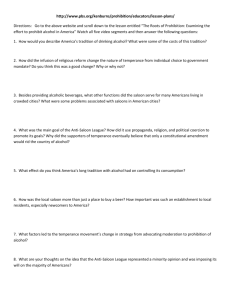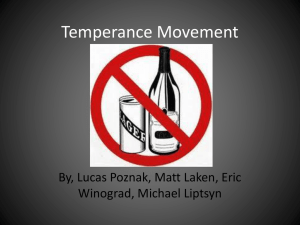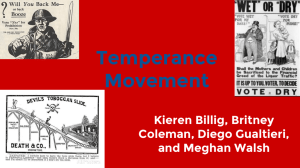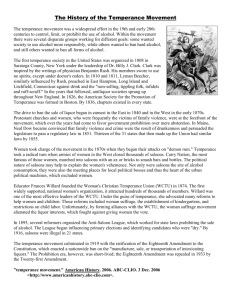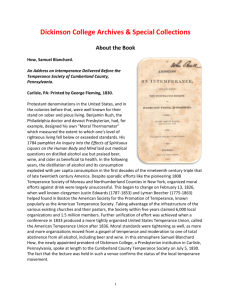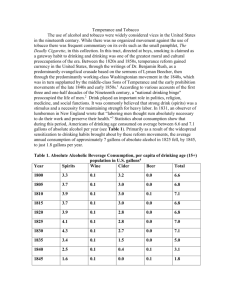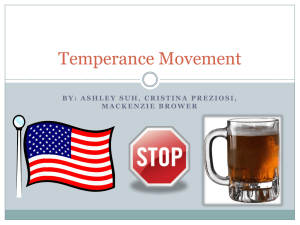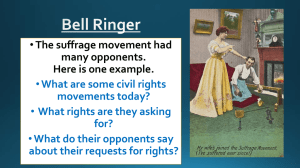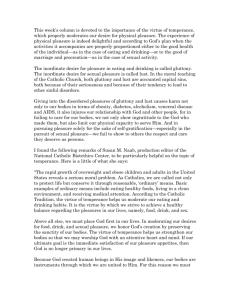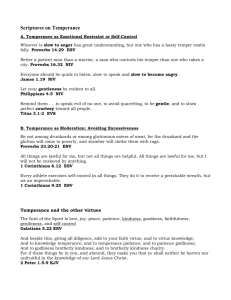Document
advertisement
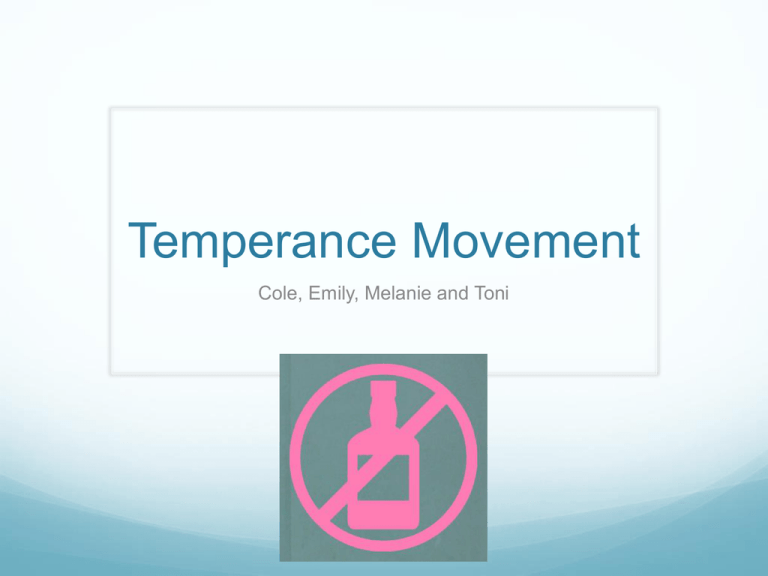
Temperance Movement Cole, Emily, Melanie and Toni Background Knowledge of the Temperance Movement Their objective was to become the national clearinghouse on the topic of temperance (wanted to improve the quality of life by abolishing alcohol) ATS was established in Boston, Massachusetts on February 13, 1826. The organization was co-founded by two Presbyterian ministers, Dr. Justin Edwards and the better-known Lyman Beecher They called alcohol "Demon Rum," because it was said that the Devil used it to take people off their righteous path New European Catholic immigrants opposed the temperance movement because alcohol was drank during religious ceremonies Leaders of the Temperance Movement Frances Williard- An American educator and a leader of Women Suffrage Movement Amelia Bloomer- feminist and Editor of the Lily Lyman Beecher- Male Protestant Prime Minister from Connecticut and Co-Founder of the American Temperance Society Links to Jacksonian Democracy Women were mostly behind the temperance movement, which helped influence a change in the consumption of alcohol, women took place in meetings and boycotts, which had never been done before The growing power to the common man during Jacksonian democracy helped to increase the idea that women deserved a fair fight in government and out of this came an emerging movement for women’s rights Accomplishments The American Temperance Society was the first U.S. social movement organization to mobilize massive and national support for a specific reform cause. Within three years of its organization, ATS had spread across the country Within five years there were 2,220 local chapters in the U.S. with 170,000 members who had taken a pledge to abstain from drinking distilled beverages. Within ten years, there were over 8,000 local groups and more than 1,500,000 members who had taken the pledge The society benefited from, and contributed to, a reform sentiment in much of the country promoting the abolition of slavery, expanding women's rights, temperance, and the improvement of society The society was most successful in the northern states More Accomplishments In 1851 the state of Maine passed a law outlawing the sale of all forms of alcohol; eleven other states and territories followed. Even though these laws could never really prevent those unwilling to follow them, the ATS never really gave up in the prohibition of alcohol. 77 years later, the 18th Amendment to the US Constitution was proposed to prohibit the manufacturing, sale, transporting, importing, or exporting of alcoholic beverages. Congress voted its approval in October 1919, and enacted it into law as the Nation Prohibition Act of 1920. Even this accomplishment for the ATS never fully outlawed alcohol from society, and eventually died out all together. Multiple Choice Question #1 The Temperance movement was a: a) Movement to reduce or prohibit the consumption of alcohol. b) Social movement mainly by women. c) Social movement by mainly by men. d) A and B only. e) None of the above Multiple Choice Question #2 Which individuals would be most against the Temperance Movement? a) Supporter of the Teetotalism movement (complete abstinence of alcohol) b) New Catholic immigrants to the United States c) Working class women who took care of the children d) All of the above Multiple Choice Question #3 Which individual was a male, Protestant, Connecticut Prime Minister and was for the abolishment of alcohol? a) Amelia Bloomer b) Frances Williard c) Lyman Beecher d) Alexander Hamilton
